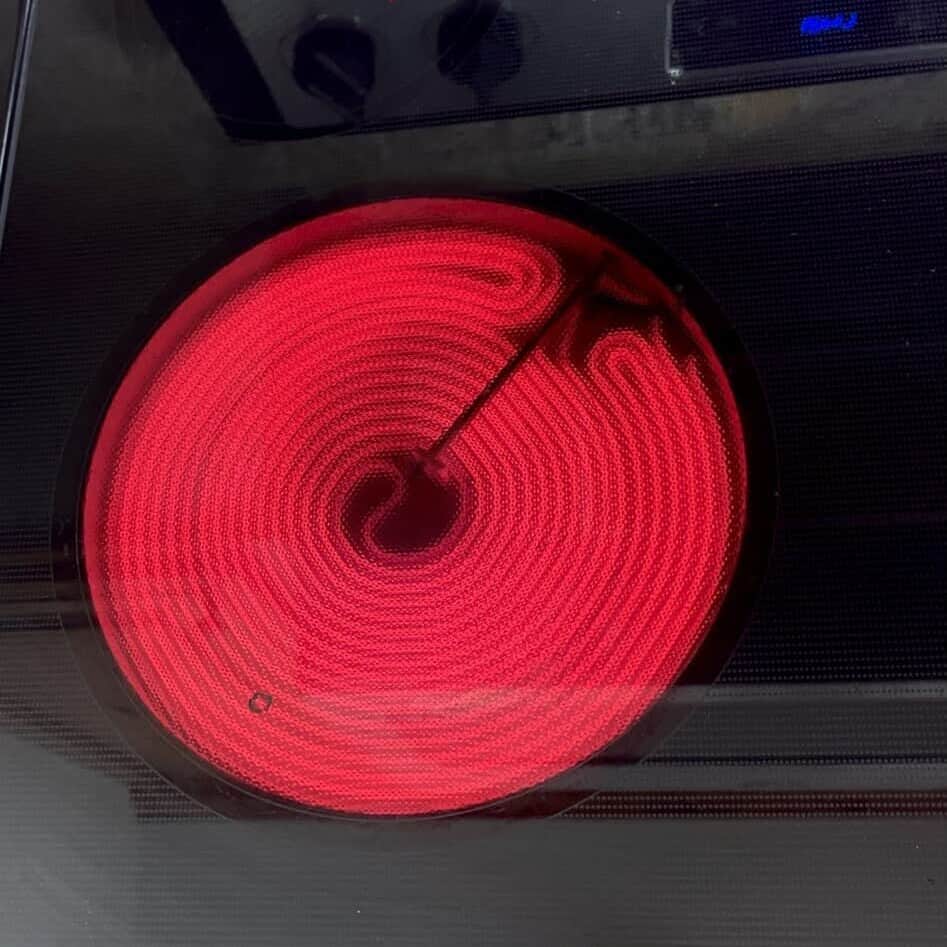
Canning on a glass stove top is possible, but it requires a greater deal of care. It’s recommended to check with your stove’s manufacturer. Below, we’ll discuss what canning with a glass stove takes and what some of the major cooktop manufacturers say about canning on glass.
Glass and Heat
Glass is a tricky material to work with, especially during the canning process. For example, glass jars need to be pre-warmed before placing the hot food inside, and they must not directly touch the bottom of the canner or else they risk shattering. Glass stovetops have a similar problem where if they reach too high of temperatures, they could possibly crack, break, and potentially shatter.
This problem is alleviated with modern technology, however; glass stoves will shut off if they become too hot in order to prevent breaking. That keeps the stove safe, but unfortunately it means that some glass stoves will not be useable for canning, because they can’t maintain a consistent high temperature.
For pressure canning, this is especially problematic, as it needs to keep up that heat or else the canned food won’t be thoroughly cooked and thus it won’t be safe to eat.
Bottom of the Canner
The smooth surface of a glass stove certainly looks nice (and it’s easy to clean), but it, too, begets problems. If your stove top is compatible with canning, that’s great. But is the canner compatible with your stove?
Your canner MUST have a completely smooth bottom if you are canning on a glass stove. A canner with a concave bottom could possibly seal to your stove top. If you tried to move it, you would risk harming the glass. If the canner has an indented or concave bottom, don’t can with it.
Weight of the Canner
Glass stoves aren’t able to hold as much weight as other stovetops. This doesn’t mean that you can’t can on one, but it does mean that you need to be mindful.
Check the capacity of what your stove can carry. Then check the weight of your canner with all the water and jars inside. If you’re careful about how much you’re putting on the stove, you won’t overload it. Then you won’t crack it.
Also keep in mind: sliding a heavy container around the stove could scratch and damage it.
Size of the Canner
The width of the canner should not exceed the width of the burner by more than an inch. When the canner is too much larger, it can reflect all of the heat back to the source and cause it to overheat. This could automatically deactivate the burner. With the burner deactivated, the food won’t be cooked consistently and thoroughly, potentially leading to botulism growth.
Keep the width of the canner close to that of the stove’s burner.
What Each Brand Says About Their Glass Stoves and Canning
Keep in mind that these usually refer to their newer editions of cooktops. This may not include old models.
GE Appliances: They say it is safe to can on their cooktops. Unlike the others, they also say “Normally, pots that extend beyond one inch of the cooking element’s trim ring are not recommended for most surface cooking; however, when canning with a water-bath, pressure canner, or pressure cooker, larger diameter pots may be used. This is because boiling water temperatures (even under pressure) are not harmful to cooktop surfaces surrounding the surface units”. They do clarify that this is ONLY when canning or boiling water.
Samsung: It is safe. They provide some tips and tricks for canning safely, too. Overall, their website has the most comprehensive coverage of this topic.
Whirlpool: They say that their Whirlpool Range glass top stove can be used for canning. They give tips for using it, such as: “When canning for long periods, alternate the use of surface cooking areas/burners or elements between batches”. Kitchenaid, Maytag and Amana also say this, since they are owned by the same company.
Wolf: It is safe. They also have links to weight limits for their stoves.
Which Canners Are Safe to Use
All American: It is generally not safe to can with these on a smooth-top stove. They are heavy and wider than many burners, both of which could cause damage to the stove. Their website says to check with the stove’s manufacturer.
Barton: It says in the descriptions of their 22 quart pressure cooker/canners that they are safe to use with glass-top stoves.
Buffalo: Some of the products are safe, some are not. When looking at the product on their website, they will say which cooktops are compatible and which are not.
Granite Ware: No. The bottom of the canner is not smooth, thus should not be used.
McSunley: Should be safe to use.
Mirro: Typically, it is judged not to be safe for use on smooth-top stoves.
Presto: They advise to check owner’s manuals before use, but Presto does say that its current lines of pressure canners should be safe to can with on glass stoves. They also include many helpful guides and FAQs for beginning canners.
T-Fal: Should be okay to use, but be sure to check the manual.
Conclusion
You can can on a glass stove. You just need to be more careful than usual, so you do not endanger yourself or the stove.
Check with your stove’s manufacturer to make sure your stove is compatible with canning. Take the necessary precautions. It is a little extra work, but for canning, it is worth it.

